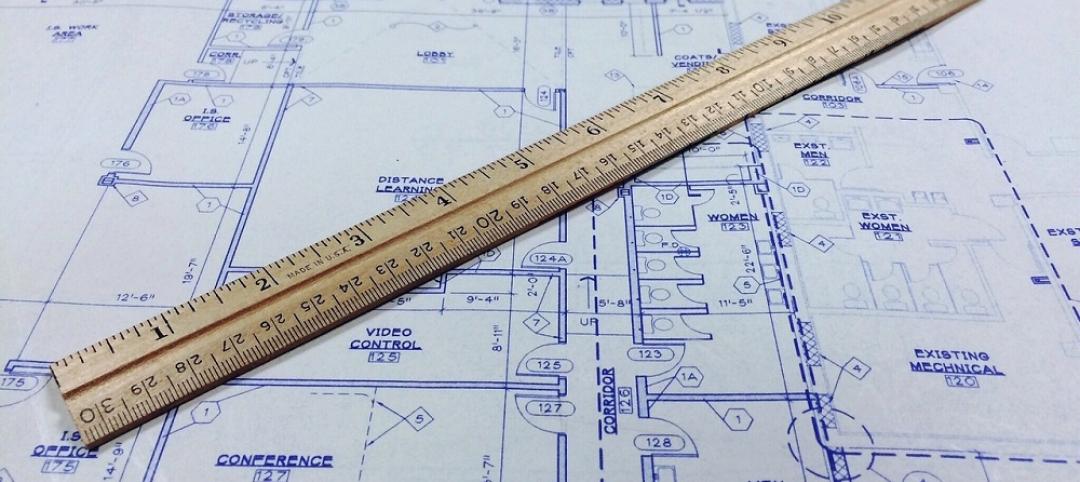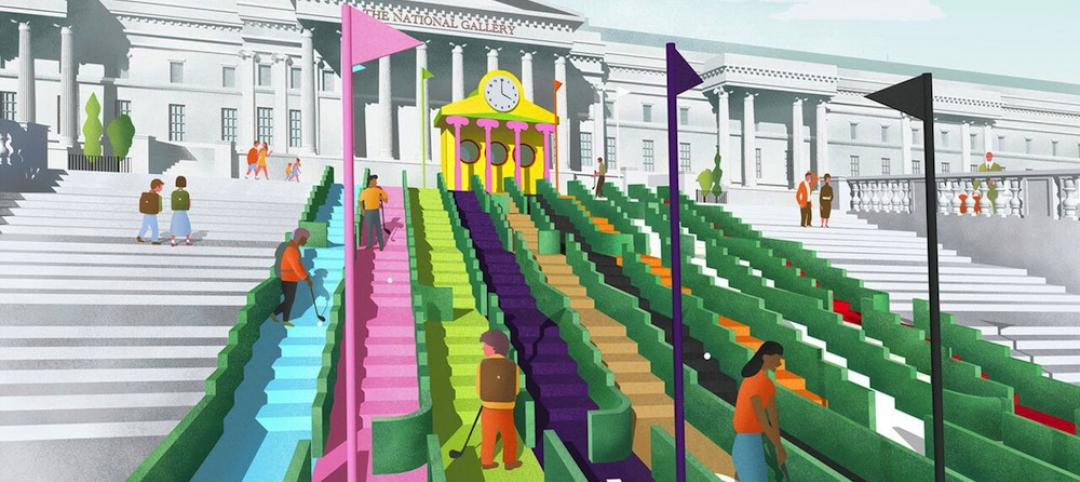Most people have created something out of Lego blocks at some point in their life, be it something small and simple like a Lego cottage, or large and complicated like Han Solo’s Millennium Falcon. At the very least, you have probably felt the wrath of one of your kid’s stray blocks, stepping on it as you walked barefoot through the house at midnight.
Regardless, Legos are typically thought of as toys or hobbies, but Adam Reed Tucker, a former architect whose business was decimated by the poor economy, is creating architectural mirabilia out of these colorful plastic blocks worthy of their own exhibit at one of the top museums in the country.
As The Chicago Tribune reports, Tucker has an estimated 9 million Lego bricks at his Chicago-area home that he uses to build his displays. His first creation was the product of a day sitting in Barnes & Noble thinking about what he wanted to do with his life after his firm closed. He wanted to work with his hands, and remembered he was good at making models as an architecture student.
His next stop was Toys R Us, where he purchased a Hogwarts Lego set and used the provided pieces to make a replica of Frank Lloyd Wright’s Fallingwater. These smaller projects grew into larger ones, such as an 8-foot-tall model of One World Trade Center (with one side left exposed to show how the building was made and why it collapsed), until, eventually, he was using tens of thousands of Lego blocks on one project alone.
Currently, Tucker has 13 pieces - and 310,000 blocks - on display at the Museum of Science and Industry as part of his “Brick by Brick” exhibit. Each piece in the exhibit shares the common theme of being an architectural wonder, such as a 60-foot-long replica of the Golden Gate Bridge created from an estimated 64,500 bricks, a Roman coliseum constructed of 22,500 bricks and shown in a cutaway to expose its manner of construction, and a Hoover Dam meant to mimic its appearance in old black and white photos.
Tucker has three more exhibits planned; one that focuses on the story of the industrial revolution, one focused on the work of Frank Lloyd Wright, and one that puts Walt Disney’s work on center stage.
Click here to view images from the “Brick by Brick” exhibit.
Related Stories
Sports and Recreational Facilities | May 6, 2016
NBA’s Atlanta Hawks to build new practice center with attached medical facilities
The team will have easy access to an MRI machine, 3D motion capture equipment, and in-ground hydrotherapy.
Big Data | May 5, 2016
Demand for data integration technologies for buildings is expected to soar over the next decade
A Navigant Research report takes a deeper dive to examine where demand will be strongest by region and building type.
Urban Planning | May 4, 2016
Brookings report details how different industries innovate
In the new report, “How Firms Learn: Industry Specific Strategies for Urban Economies,” Brookings' Scott Andes examines how manufacturing and software services firms develop new products, processes, and ideas.
Architects | May 3, 2016
Study finds engineering, architecture among the best entry-level jobs
The results balanced immediate opportunity, job growth potential, and job hazards.
Architects | Apr 25, 2016
Notable architects design mini-golf holes for London Design Festival
Visionaries like Paul Smith, Mark Wallinger, and the late Zaha Hadid all helped in designing the course, which will be integrated into London’s Trafalgar Square.
University Buildings | Apr 25, 2016
New University of Calgary research center features reconfigurable 'spine'
The heart of the Taylor Institute can be anything from a teaching lab to a 400-seat theater.
Architects | Apr 22, 2016
What leads to success in the density-driven workplace?
CallisonRTKL’s Kirill Pivovarov explores how densification can lead to increased productivity and innovation in the workplace.
Government Buildings | Apr 22, 2016
Public-private partnership used to fund Long Beach Civic Center Project
Arup served as a lead advisor and oversaw financial, commercial, real estate, design, engineering, and cost consulting.
High-rise Construction | Apr 20, 2016
OMA reveals designs for its first Tokyo skyscraper
The goal is for the Toranomon Hills Station Tower to transform its neighborhood and serve as a hub for international business.
Architects | Apr 20, 2016
Bill Hellmuth named HOK’s new CEO
Hellmuth has been HOK's President since 2005. The firm will be led by a design principal for the first time since 1990.

















